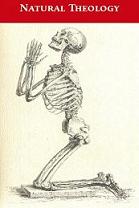
Something to look forward to.
Here's what's coming up on Season Three of Office Hours.

Here's what's coming up on Season Three of Office Hours.

"Natural theology is useful to men, for we acknowledge its various ends and uses: (1) as a witness of the goodness of God towards sinners unworthy even of these remains of light (Acts 14:16, 17; Jn. 1:5); (2) as a bond of external discipline among men to prevent the world from becoming utterly corrupt (Rom. 2:14, 15); (3) as a subjective condition in man for the admission of the light of grace because God does not appeal to brutes and stocks, but to rational creatures; (4) as an incitement to the search for this more illustrious revelation (Acts 14:27); (5) to render men inexcusable (Rom. 1:20) both in this life, in the judgment of an accusing conscience (Rom. 2:15) and, in the future life, in the judgment which God shall judge concerning the secrets of men (Rom. 2:16)" (Institutes, I.1.4.4)






"So I think that perspectivalism is an encouragement to the unity of the church. Sometimes our divisions of theology and practice are differences of perspective, of balance, rather than differences over the essentials of faith. So perspectivalism will help us better to appreciate one another, and to appreciate the diversity of God's work among us."


"Total depravity. That means the whole glass is poisoned. It's not as poisoned as it could be, but it's all poisoned. The faculties of soul are all turned against God by nature. All are poisoned by sin. Wherever there is evidence of God, which is everywhere, man will deny it. You see, God must reach down and save dead men in their trespasses and sins. You do not heal a dead man. You resurrect him. Man is not sick, not drowning, but dead. Dead is dead. You can't throw him a rope. A dead man can't grab anything. Your mother is dead without Christ. Your culture is dead without Christ. This is the problem with Karl Barth, there's no space-and-time redemption by Christ. There's no change of the unbeliever to believer. There's no challenge to the natural man. That's why Barth is poison. Water and sulfuric acid look the same, right? If you drink sulfuric acid, it will kill you. Barth has placed sulfuric acid in our water bottles and told us it is water. Barth has created the systematically most satanic philosophy ever devised by the mind of man. Salvation is like cleaning a bad tooth. It's no good if your dentist tells you your tooth is okay when it's rotten. The dentist has to go down, drill out the decay and replace it with gold. This is what salvation is." (Van Til Made Me Reformed by Eric H. Sigward, emphasis mine)
